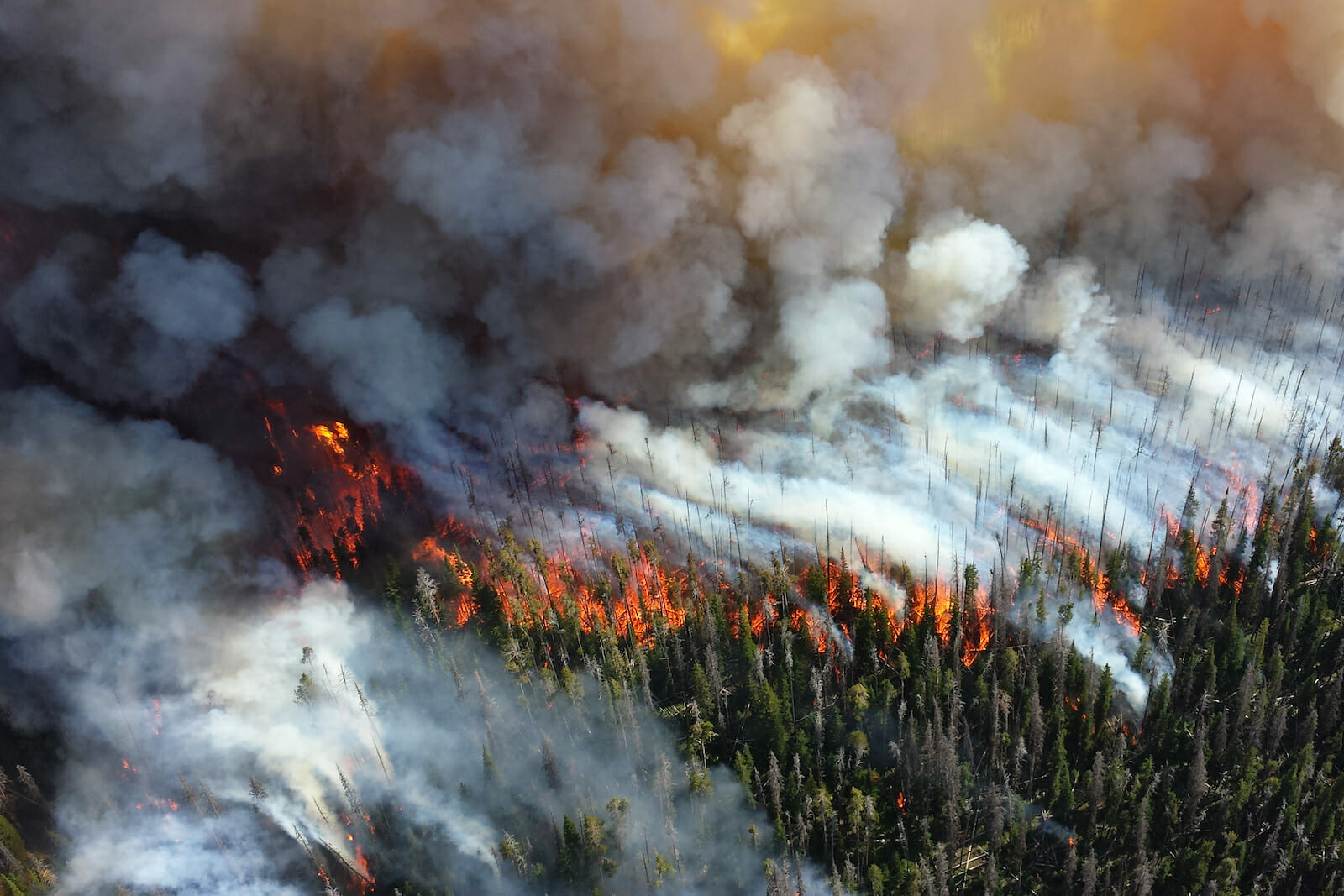
The Threat of Climate Change Deregulation
Orange-tinted skies are thick with smoke. Millions of square miles of burned earth make the Western United States look truly apocalyptic. In the midst of a global pandemic, over 47,000 wildfires have resulted in billions of dollars in damage, dozens missing, and over 30 deaths.
These record-breaking wildfires show the devastating impact of climate change. The Trump administration, however, is blind to its consequences. President Trump has reversed 72 critical environmental regulations and, on November 4th, formally withdrew the U.S. from the Paris Climate Agreement. With Joe Biden having won the presidency, it is time to recommit to fighting climate change and prioritize the health and safety of the American people.
Trump’s rollbacks threaten U.S. leadership and accountability on combating climate change. The U.S. is responsible for nearly one-third of cumulative CO2 emissions and it has a responsibility to take action. There were clear successes of Obama-era regulations. The U.S. saw growth of the economy by 10.6% over 7 years with a reduction in CO2 emissions by 9.4%. It saw a substantial reduction in the cost of solar energy by 64%. It decreased dependence on oil imports by more than 6,000 barrels per day. Despite this evidence of success, Trump is reversing course by rolling back critical climate policies, promoting the development of the fossil fuel industry, and encouraging the construction of highways and oil infrastructure.
Trump’s rollbacks threaten devastating environmental damage. From increased rainfalls and floods to extreme heat and droughts, climate change wreaks havoc. Hurricanes drown coastal cities and sweltering heat causes greenery to wilt. And, what’s worse, the wildlife that thrives off of diverse ecosystems end up as collateral damage. Climate change breaks down the very necessary and natural ecological organizations that sustain our nation and the planet.
Climate change threatens human health. It accounts for a myriad of illnesses. From respiratory and cardiovascular issues to heat strokes and transmittable diseases, by some estimates, 150,000 people a year die from climate related health issues. It affects humans individually and can lead to transnational threats like mass migration and conflict. It jeopardizes the air we breathe, the water we drink, and the food we eat. It affects everyone, everywhere, and it will continue to threaten human livelihoods as long as it is ignored.
Finally, Trump’s rollbacks threaten scientific research, innovation, and U.S. competitiveness in climate solutions. Deregulation defunds public-private partnerships to develop cleaner energy technologies. It discourages critical climate change mitigation and climate change preparedness. Without incentives for scientific research and innovation, foreign competitors will overshadow America’s capability to develop and export green technologies. The U.S. needs these policies to better compete in a market that is already very profitable.
Some are concerned that regulatory costs will be substantial and unworthy of U.S. funding. The alternative costs of inaction, however, would far outweigh the costs of compliance. The Office of Management and Budget evidenced in their 2017 report to Congress that environmental regulations brought net benefits of over $830 billion from 2006-2016. Compared to the maximum regulatory costs of $115 billion during that timeframe, it is easy to see that the benefits dwarf the costs by more than sevenfold. Though it will take time to reverse deregulation, failing to put policies and safeguards in place guarantees substantial economic consequences. It is better to be environmentally safe than sorry.
Apocalyptic skies and blackened burned earth show with great clarity the threat of climate change and the perils of denial. But the U.S. is not beyond hope. By restoring previously established policies to combat climate change, the U.S. is capable of changing for the better. It is crucial for the United States to step up, fight back, and prioritize the health and safety of its people and the planet.
